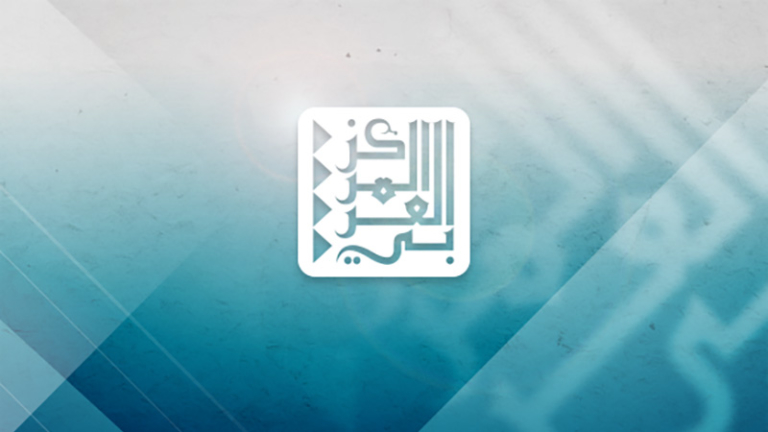
Iran’s recent launch of a medium range ballistic missile played to the Trump Administration’s expectations of Iranian behavior regarding strategic weaponry in the Arabian Gulf and the Strait of Hormuz. It is not secret that many governments and strategic observers were waiting to see what would happen if Iran continued its provocative activities in the Arabian Gulf area by targeting sea lanes and threatening shipping within the Strait and beyond.
Since his electoral campaign days, President Donald Trump disapproved of the nuclear deal with Iran, engineered by the former US Secretary of State John Kerry and the Iranian Minister of Foreign Affairs Mohammad Jawad Zarif. That deal was perceived as opening the way for Iran to remedy its hardships, especially on the economic side, giving Iran a space to breathe more easily, and providing a source of financing for its intervention in the region. After assuming office on January 20, 2017, President Trump lost no time to signal his new approach through various statements, tweets, and actions. This paper will discuss his new strategy and its implications for Iran, the region, and the US approach to the current situation both in the Gulf as well as the Arab Middle East.1
Iranian Provocations in the Gulf
The Iranian Revolutionary Guard Navy (IRGN) has often used its fast patrol boats to threaten the sea lanes used by shipping companies and US and other western navies deployed in the region. There has been a history of enmity between the United States and Iran since the Iraq-Iran war of 1980-88, during which the US Navy started to place the US flag on Kuwaiti oil tankers to deter Iran from targeting and threating them.2
After the Iraqi invasion of Kuwait (1990-91), the United States Navy (USN) increased its presence in the Gulf, stationing its Fifth Fleet in Bahrain. The chances of USN-IRGN conflagrations increased. However, the extended USN presence in the region was due to Iraq’s invasion of Kuwait as well as bilateral security and defense agreements with Arab Gulf state allies.
Tens of provocative activities took place in the area, most of them initiated by the IRGN; fast patrol boats would approach USN ships and direct weaponry toward them or maneuver around them in combat-like tactics. In fact, there were dozens of high profile Iranian naval harassment incidents against USN ships sailing in the region. Except for one encounter when the USS Squall fired warning shots at Iranian vessels, the response to other provocations on the part of USN were mild and restricted to signaling warnings, communication between the secretary of the state and his counterpart in Tehran, or condemning the actions of the IRGN in the Strait and Gulf. This lukewarm stand led to a more radical strategy of the IRGN, paving the way to the emergence of a more aggressive Iranian naval strategy in the Gulf. Iran started to talk about a solely Iranian Persian Gulf which all the parties were required to honor and respect if they wanted to use the water lanes peacefully. 3
After signing the Joint Comprehensive Plan of Action (JCPOA) with the five permanent members of the UN Security Council and Germany (P5+1) and the European Union in July 2015, Iran and the United States differed in their views regarding the right of Iran to promote and test strategic missiles—a position that Iran perceived as consent, and so it maintained its missile programs. Many missile tests were conducted during the Obama Administration without firm responses from the American side.4 This signaled to the Iranians that Washington would not become involved in the Gulf again, and that the differences between Iran and its Arab neighbors should be settled bilaterally.
A Different Approach by President Trump
In reviewing Donald Trump’s attitude toward Obama’s strategy in the Gulf, as expressed before and during the election campaign, one notices his firm stand against the JCPOA. He expressed a will to revisit the nuclear deal to ensure Iran’s full compliance and to prevent it from acquiring nuclear weapons and other strategic armaments, including missiles capable of threatening the interests of the United States and its allies.
The Obama Administration’s policy toward Iran was perceived by the GCC countries as one that encouraged Tehran to play a major role in the Gulf, thus straining relations between the United States and the GCC countries during a summit convened in Camp David in May 2015. King Salman of Saudi Arabia—a major US ally in the region—refrained from joining the summit under the pretext of a previous commitment; he sent the crown prince instead. Experts in regional diplomacy viewed this Saudi gesture as a message of displeasure, one representing a fundamental difference between the policy of the United States, Saudi Arabia, and other GCC countries toward Iran. The GCC countries view Iran as a destabilizing force that will continue—if not increase—after this deal. Judging from the subsequent lifting of sanctions, one could argue that this point of view proved to be right.
This may be the main reason why the GCC countries were content with Donald Trump’s victory in the US presidential election. They believe that he will take a firm stance toward Iran. To that end, one must examine two recent developments pertaining to the Gulf region: first, the announcement by the White House spokesman on February 1st, following National Security Advisor Michael Flynn’s announcement, regarding putting Iran on notice (this was affirmed by Secretary of Defense General Mattis, an old critic of the Iranian role in the region); and second, the starting of naval maneuvers by five states—the United States, France, Australia, Saudi Arabia, and the United Kingdom)—in the Gulf region under British Command. This development came after the call between King Salman of Saudi Arabia and President Trump, and the Iranian m.
Michael Flynn clearly signaled a tough stance toward Iran when he condemned the recent missile test, declaring that Washington is putting Tehran “on notice” and accusing the Obama Administration of having “failed to respond adequately to Tehran’s malign actions.” He cited Iran’s involvement in Yemen as a supporter of the rebels, the Houthis, as examples of Iranian meddling in other nations’ affairs and other destabilizing activities committed by the Islamic Republic and its proxies.
Flynn, who is known to be radically anti-Iran and anti-Islam, insisted that the missile launch was in defiance of UN Security Council resolution 2231, which calls on Iran not to test missiles capable of delivering nuclear weapons.
Mohammad Javad Zarif, the Iranian minister of foreign affairs, said that the missile test was defensive in nature and that the missiles were not meant to deliver nuclear weapons. Other Iranian officials followed suit, shrugging off the US president and his officials and calling them “inexperienced.”
Iran also reacted fiercely to the naval war games, which were begun on January 31, by quoting Iranian Navy commander Rear Admiral Habibollah Sayyari, saying in a statement that “Anybody who wishes to stage a war game within the limits of free waters should follow the international law, and we do not allow anybody to get close to our waters and this is our red line.” Earlier, the US Naval Forces Central Command spokesman Lt. Rick Chernitzer told the media, “This exercise is not directed toward any nation, but will demonstrate a combined commitment to an enduring presence, and to regional stability”—a statement whose implication is that the United States and its allies will not be leaving the Gulf region anytime soon.
The White House retaliated to the missile launch quickly by sanctioning 25 Iranian individuals and entities, mainly those related to the IRGN military-industrial complex and its proxies, although the precise list is not yet declared.
Trump stated that all alternatives in dealing with Iran are on the table. Moreover, he tweeted on February 1st that “Iran is rapidly taking over more and more of Iraq even after the U.S. has squandered three trillion dollars there.” He continued on the same line when he tweeted on February 3rd that “Iran is playing with fire—they don’t appreciate how ‘kind’ President Obama was to them. Not me!”
Iraq’s Flirtation with Russia?
The tweet about Iran increasing its influence over Iraq will certainly affect the ruling Shiite parties as well as the Iranian proxies and militias. Here we have a complicated issue: the Iranian involvement in Iraq is so deep that the Iraqi Shiite parties follow Iran and its political system of vilayet e faqih rather than the Iraqi government. For its part, the Iraqi government feels that it needs American help in its ongoing campaign in Mosul, especially in air support, arms, and ammunition. The military and strategic advice is of utmost importance to the Iraqi fighting forces in and around Mosul. In this respect, some of Iran’s proxies in Iraq, such as former Prime Minister Nouri al-Maliki, who dreams of gaining power once again, have started to approach Russia in case the Trump Administration decides to withdraw its support of Iranian proxies in Iraq. Maliki is reported as pointing to the precedent of Bashar Assad calling the Russians in, and they saved him. An anonymous member of the Da`wa Party, the ruling Shiite party in Iraq, said that Maliki may visit Russia to strike a deal to reinstate him in power while granting Russia whatever it covets in Iraq.
The Russian factor should be taken in consideration, if any negative developments occur in US-Russian relations regarding Ukraine, Crimea, the cyber hackings, and the US sanctions on Russia. Now Russia is the most active and vigorous player in the Arab Middle East, competing with American presence and influence. The recent visit of the Deputy Supreme Commander of the United Arab Emirates Armed Forces, Sheikh Mohammad bin Zayed Al Nahyan, to Moscow reinforces such a view.
Conclusion
In light of these developments, it is clear that we are entering a new era of power relations in the Levant, Iraq, Iran, and the Arabian Gulf. The major players will be the GCC countries, perhaps with the exception of Oman, and the western alliance, Iraq, and Iran. Here we must keep an eye on Russia’s behavior, for Moscow is ready to step in if it perceives any threats to its interests in the region.
——————————————————————————————————————————————
1 By the Arab Middle East, I mean the Levant, Iraq, Egypt, and the Arabian Peninsula.
2 Operation Earnest Will, the reflagging to protect Kuwaiti-owned tankers by the American military from July 24, 1987 to September 26, 1988, after the termination of the Iraq-Iran war. That was the largest convoy protection operation since WWII. Margaret G. Wachenfeld, “Reflagging Kuwaiti Tankers: A U.S. Response in the Persian Gulf,” Duke Law Journal 1988: 174-202.
3 For Iranian provocations of US shipping in the Gulf, see Cmdr. Jeremy Vaughan, USN, “Deterring Iranian Provocations at Sea,” The Washington Institute Policy Watch 2685, http://www.washingtoninstitute.org/policy-analysis/view/deterring-iranian-provocations-at-sea
4 Obama displayed many positive stances toward Iran, including his speech on 3/19/2015 on the Iranian new year Nowruz, when he called upon Iranian leaders and people to accept the nuclear deal. See https://www.youtube.com/watch?v=pZoMIS3cFRA

